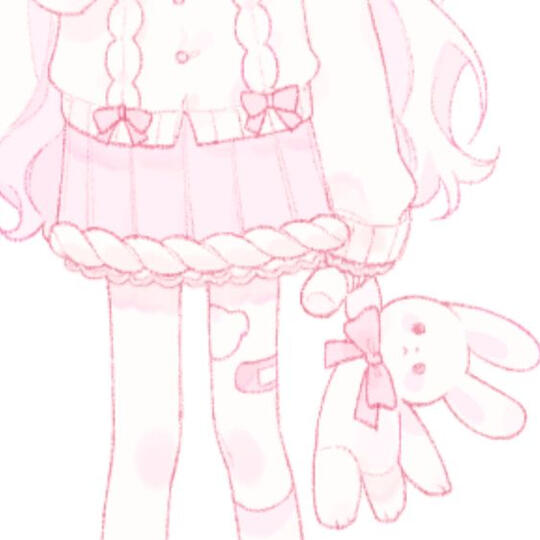
What Is Age Regression
What Is Regression
Definition
Regression is when someone reverts to a state of mind where they are younger than their current age or an animal state of mind which they find comforting.Why?
Regression is often used as a coping mechanism for things like PTSD, depression, anxiety, and other mental health issues. Regression in adults can arise at any age; This would be retreating to an earlier stage of life. (emotionally, socially and/or behaviourally). Many overwhelming emotions can cause an adult to regress. In essence, individuals revert to a point in their development when they felt safer and when stress was non-existent, or another adult would have rescued them.How Does It Help?
Regression provides a safe space and break from mental health issues and other issues. Many regressors benefit from having a caregiver to provide them with extra love and support. Some regressors may need help with: A reasonable bedtime, A set of rules to help them manage daily life or to generally help with personal matters such as grooming/eating.
Types Of Regression
Age Regression
Age Regression is when someone reverts to a younger state of mind. This regression may be only a few years younger than the person's physical age. It could also be much younger, into early childhood or even infancy.Pet Regression
Pet regression (petre for short) is very similar to age regression, but instead of regressing to a younger age you regress to the mindset/head space of an animal. This animal can be anything from household pets, wild animals and mythical creatures. When regressing as an animal the person may take on behaviours similar to that animal for example a puppy regressor may be more energetic, bite things and want to play. Many pet regressors use gear such as ears, collars & dog toys but they may still use things used in age regression.Age Dreaming
The difference between age regression and age dreaming is that in age regression your brain mentally reverts back to a younger age where as in age dreaming you do not do that. An age dreamer is someone who likes having the mentality of a younger age but they do not mentally revert back to a younger age. Age Dreaming can and is still used as a coping mechanism in the same way regression is. Some age regressors use age dreaming as a way to help them self's regress. Some Age Dreamers also use little gear like pacifiers and sippy cups etc and take part in childish activities just like regressors.
Age Ranges
Age Ranges
People can regress to any age younger than their current age. Here are a few behaviours and activity's people of each age range may take part in.0-2
Uses pacifier
Uses Bottles
Uses Diapers
Sleeps a lot
Dependant on carer
Baby talks
May be/go nonverbal3-5:
Uses pacifier
Uses sippy cups
May use diapers
Uses words but not full sentences
Likes toys and stuffies
May be/go nonverbal6-8:
Likes to color
Active and energetic
Enjoys games
Plays dress up
More independent
Very curious9-12:
High energy
Highly independent
Enjoys video games
Very social13+
Enjoys video games
Likes spending time with friends
Mostly independent(this may not apply to everyone and is a very basic description)
Voluntary & Involuntary
Voluntary
Voluntary regression is where a person chooses to regress to relieve stress, cope with mental health issues or for fun.Involuntary
Involuntary regression is where someone regresses against their will, typically to deal with high levels of stress or due to past trauma.
Pure & Impure Regression
Pure
Pure regression (also known as play regression) is when you involuntary or voluntarily regress. It is normally a happy and fun experience and a way to escape mental health and other issues for a while and cope. It is possible to be upset during pure regression but it is not impure. Though it is possible for pure regression to becoming impure due to stress or a trigger.Impure
Impure regression (also known as vent regression) is typically your brains involuntary response to thinking about traumatic events, severe mental health issues or flash backs to keep you safe and let you feel they emotions and a safe way. Impure regression is fully involuntary and always triggered, meaning you don't control when or how you regress. Impure regression can involve flash backs, crying, bad memories etc and is over all a scary and not happy experience.
Caregivers
What Is A Caregiver?A caregiver is someone who helps to look after someone when they are regressed, The relationship may be platonic or romantic it just depends on the people. Some regressors may refer to their caregiver as mommy or daddy but there are many names you can call a caregiver it just depends on what you’re both comfortable with and like, some regressors just call their cg by there name.What Do They Do?
A caregiver may help their regressor by checking that they have ate, drank and taken there meds, They may also set rules and rewards. Using the rules as motivation for the regressor to do things they need to do. Caregivers help regressors regress by talking to and treating them as the age or pet they regress too. They may do this by asking them to color a picture, put on a kids movie for them or just tucking them up with there stuffies and blankie, there are lots of ways a caregiver can help there regressor it just depends on the person.
Resources
All Articles below have been medically reviewedHealthline - Understanding Age RegressionVery Well health - Age Regression: Trauma, Coping Mechanisms, and Therapy -National Institutes of Heath - Regression: Diagnosis, Evaluation, and ManagementPsych Central - What is Age Regression and How Can You Overcome It?WebMD - What Is Age Regression Therapy?